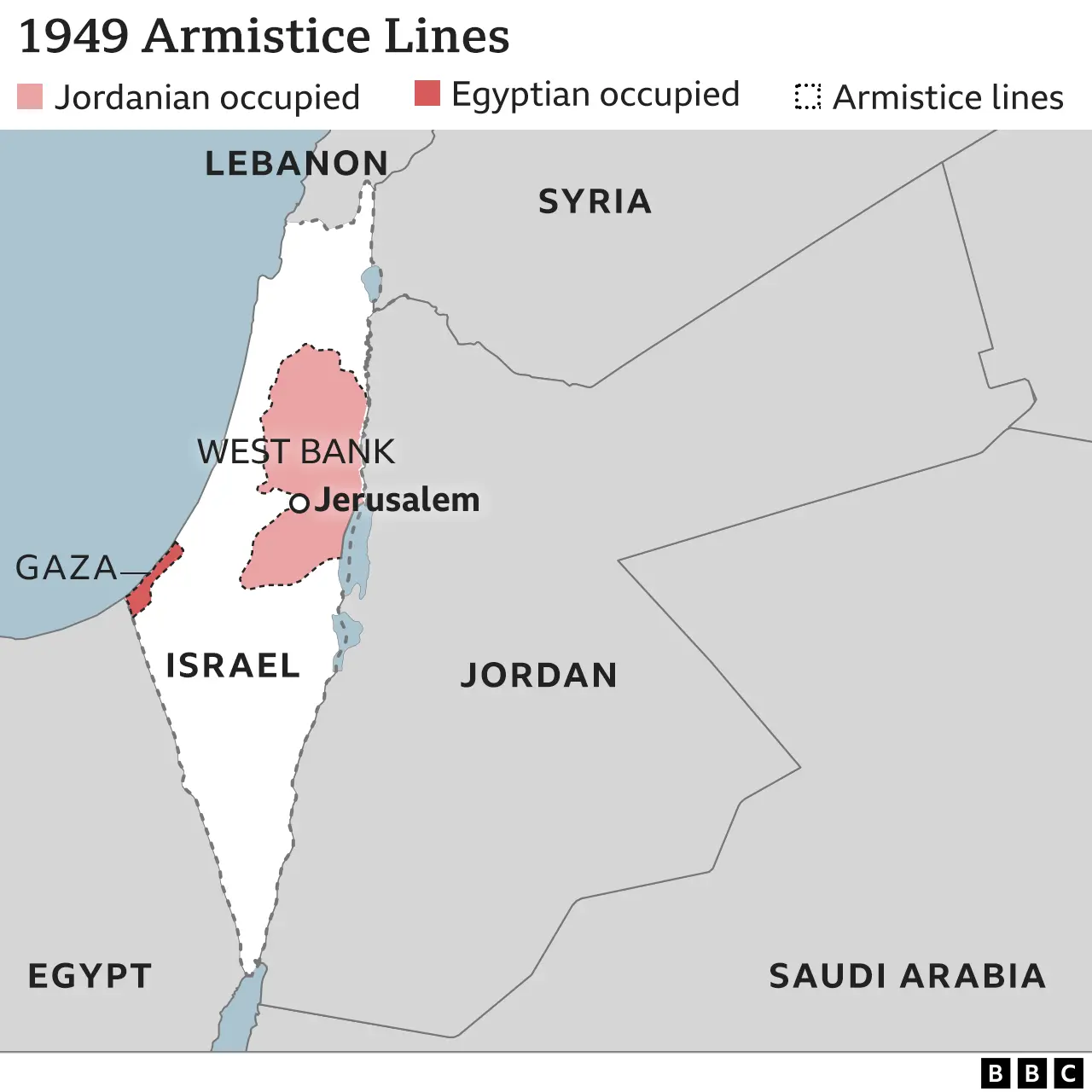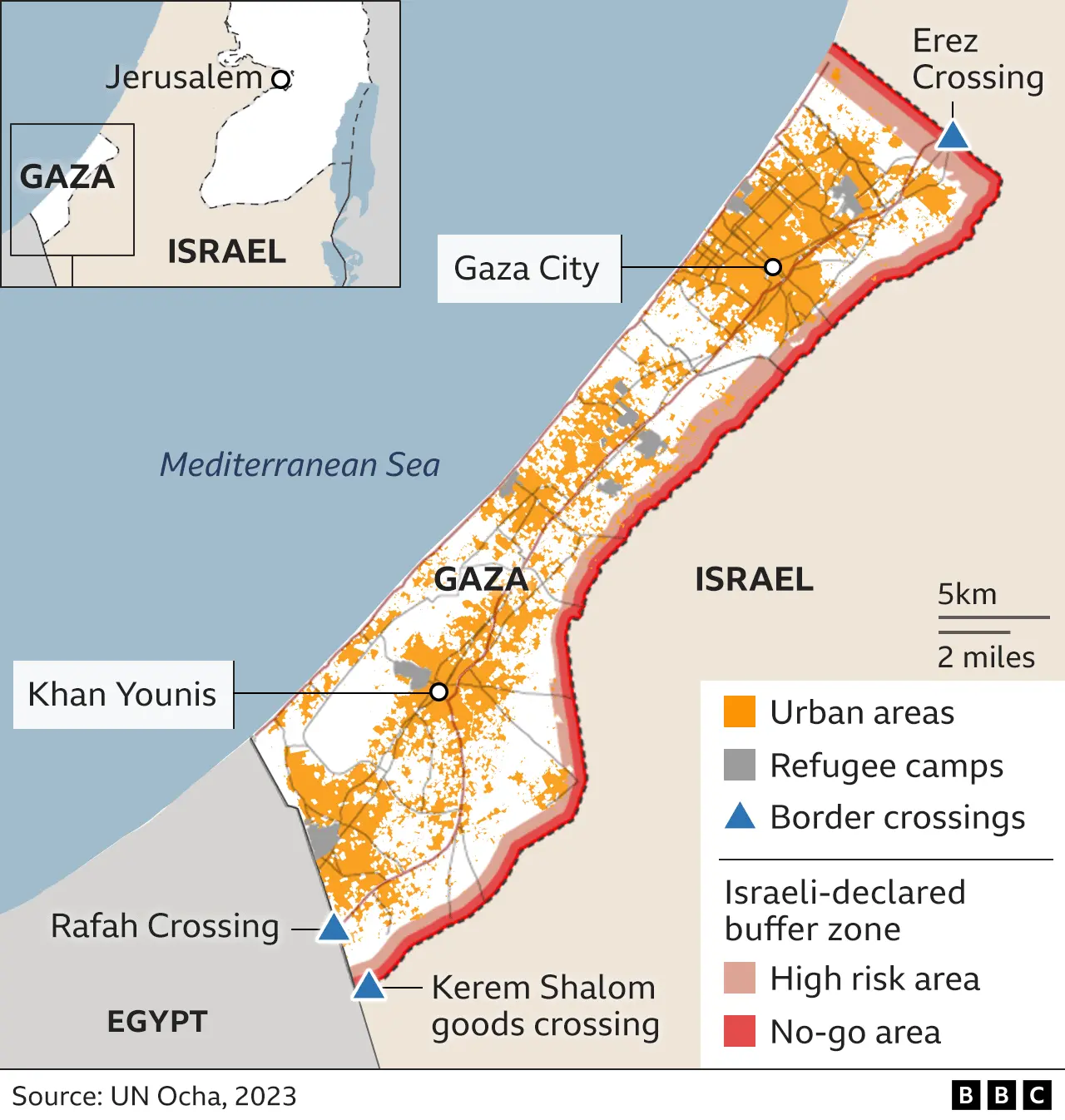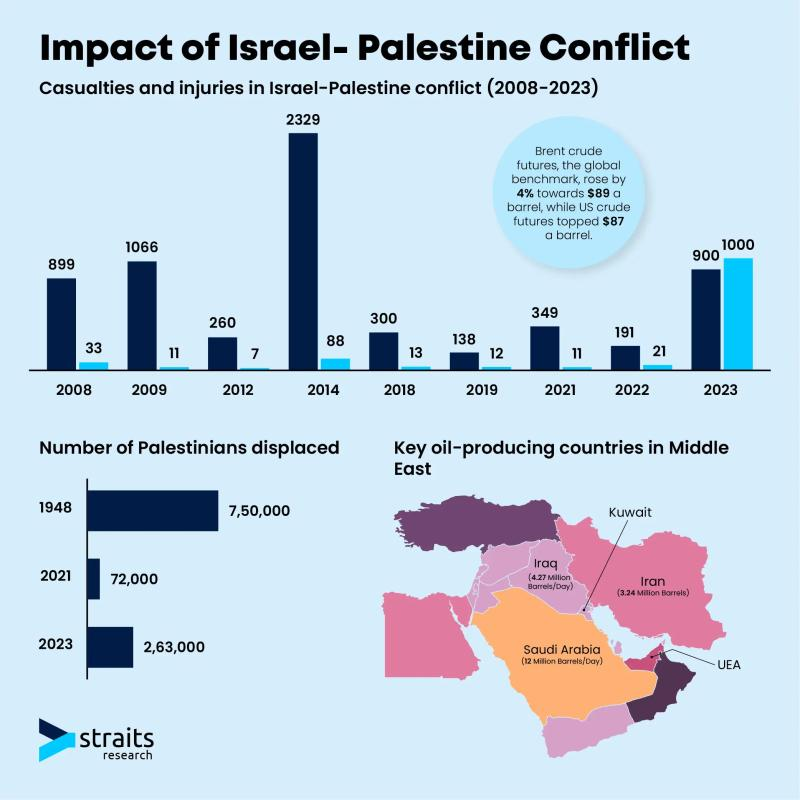Israel before 1948?
Britain assumed control of Palestine after the defeat of the Ottoman Empire in World War I. At that time, the region was home to a Jewish minority and an Arab majority, along with various smaller ethnic groups. Tensions escalated when the international community tasked the UK with establishing a "national home" for Jewish people in Palestine, a commitment rooted in the Balfour Declaration of 1917.
The Balfour Declaration was issued by British Foreign Secretary Arthur Balfour in a letter dated November 2, 1917, to Lord Walter Rothschild, a prominent figure in the Zionist movement. This declaration expressed British support for the establishment of a national home for the Jewish people in Palestine while also stating that nothing should be done to prejudice the civil and religious rights of existing non-Jewish communities in the region. The declaration was incorporated into the British Mandate for Palestine, which received formal approval from the League of Nations in 1922. While it ignited hopes among Jews for a return to their ancestral homeland, it simultaneously fueled opposition among Palestinian Arabs who felt their rights and claims to the land were being overlooked.
As Jewish immigration increased during the British Mandate, tensions further intensified, leading to violent clashes between Jewish and Arab communities. The conflicting promises made by Britain during this period—both to Jews and Arabs—have been cited as pivotal factors contributing to long-lasting disputes over land and sovereignty that continue to affect relations in the region today
Israel created and wars
In 1948, unable to solve the problem, Britain withdrew and Jewish leaders declared the creation of the State of Israel.
Fighting between Jewish and Arab militias had been intensifying for months, and the day after Israel declared statehood, five Arab countries attacked.
During what Palestinians refer to as Al Nakba, or the "Catastrophe," hundreds of thousands were either expelled or fled from their homes. This mass displacement occurred amid the 1948 Arab-Israeli War, which followed the declaration of the State of Israel. By the end of hostilities, Israel had gained control over a significant portion of the territory.
Jordan occupied the area that became known as the West Bank, while Egypt took control of Gaza. The city of Jerusalem was divided, with Israeli forces controlling the western part and Jordanian forces occupying the eastern part. This division and the resulting displacement had profound and lasting impacts on Palestinian society and identity, shaping ongoing conflicts in the region.

In the 1967 war, Israel occupied East Jerusalem, the West Bank, most of the Golan Heights in Syria, Gaza, and the Sinai Peninsula in Egypt. This conflict significantly altered the geopolitical landscape of the region.
Today, many Palestinian refugees and their descendants reside in Gaza and the West Bank, as well as in neighboring countries such as Jordan, Syria, and Lebanon. Israel has not permitted their return to their original homes, arguing that allowing them back would overwhelm the country and pose a threat to its identity as a Jewish state. This ongoing situation remains a central issue in the Israeli-Palestinian conflict, contributing to enduring tensions and disputes over rights and sovereignty.
Tensions in the Middle East escalated significantly over the years, particularly between Israel and its neighboring countries—Egypt, Jordan, and Syria. Following the 1956 Suez Crisis, during which Israel invaded the Sinai Peninsula, these nations formed mutual defense pacts in anticipation of further Israeli military action.
In June 1967, after a series of maneuvers by Egyptian President Gamal Abdel Nasser, Israel launched a preemptive strike against Egyptian and Syrian air forces, igniting the Six-Day War. By the end of this conflict, Israel had captured the Sinai Peninsula and Gaza Strip from Egypt, the West Bank and East Jerusalem from Jordan, and the Golan Heights from Syria.Six years later, during the Yom Kippur War (or October War), Egypt and Syria launched a surprise attack on Israel to reclaim lost territories. Although the conflict did not yield significant territorial gains for either side, Egyptian President Anwar al-Sadat declared it a victory, paving the way for negotiations over previously ceded lands.
In 1979, after a series of ceasefires and peace talks, Egypt and Israel signed the Camp David Accords, ending three decades of conflict between them. However, this agreement did not resolve the issue of Palestinian self-determination. In 1987, Palestinians in the West Bank and Gaza initiated the first intifada, or uprising, against Israeli rule.
The Oslo I Accords in 1993 established a framework for Palestinian self-governance in parts of these territories, followed by the Oslo II Accords in 1995, which mandated further Israeli withdrawals from specific areas in the West Bank.
In 2000, frustrations over ongoing Israeli control led to the second intifada, triggered by former Israeli Prime Minister Ariel Sharon's controversial visit to the al-Aqsa mosque. In response to escalating violence, Israel began constructing a barrier wall around the West Bank in 2002.The political landscape shifted dramatically in 2006 when Hamas won parliamentary elections, displacing Fatah as the dominant party. This led to violent clashes between Hamas and Fatah, culminating in a unity government in 2014.In 2014, hostilities erupted again between Hamas and Israel, resulting in significant casualties on both sides. The violence continued with flare-ups in subsequent years, including a notable confrontation in May 2021, sparked by tensions over evictions in East Jerusalem.
The political situation further evolved with the election of Benjamin Netanyahu's far-right coalition government in December 2022, which focused on expanding Israeli settlements and limiting judicial oversight.
WHAT IS GAZA
The Gaza Strip is a narrow territory located along the eastern coast of the Mediterranean Sea, bordered by Israel to the north and east and Egypt to the southwest. Measuring approximately 41 kilometers (25 miles) in length and between 6 to 12 kilometers (3.7 to 7.5 miles) wide, it is one of the most densely populated areas in the world, with over two million residents.
Following the 1948-49 Arab-Israeli War, Gaza came under Egyptian control for nearly two decades. In the 1967 Six-Day War, Israel occupied Gaza, establishing settlements during its military presence, which lasted until 2005. Although Israel withdrew its troops and dismantled these settlements in 2005, it retained control over Gaza's airspace, borders, and maritime access. The United Nations continues to classify Gaza as an occupied territory.
The population primarily consists of Palestinian refugees and their descendants, many of whom were displaced during the conflicts surrounding the establishment of Israel. Living conditions in Gaza are challenging due to high population density, limited resources, and ongoing conflict, contributing to significant humanitarian issues.

CURRENT SITUATION
On October 7, 2023, Hamas launched a significant attack on Israel, prompting the Israel Defense Forces (IDF) to initiate extensive aerial campaigns and ground operations in the Gaza Strip. Efforts to rescue over one hundred hostages, both Israeli and foreign, taken by Hamas have largely failed, leaving their whereabouts and health status unknown. Since the onset of the conflict, nearly two million residents of Gaza—more than 85% of the population—have been displaced from their homes. Recent estimates from the Hamas-run Gaza Health Ministry indicate that around 42,000 people have died in Gaza, although these figures are difficult to verify due to restricted international access to the area.
Meanwhile, U.S. Secretary of State Antony Blinken is working to broker a ceasefire and facilitate the release of hostages. The conflict has heightened tensions throughout the Middle East, with Hezbollah fighters in Lebanon engaging in cross-border skirmishes with the IDF. Additionally, Yemen's Houthi rebels have launched missiles at Israel and commercial vessels in the Red Sea, while other Iran-backed groups have conducted numerous attacks on U.S. military positions in Iraq and Syria.
Recents
In early October 2023, Hamas launched a surprise attack on Israel, firing rockets and storming southern towns, resulting in over 1,300 Israeli deaths and 3,300 injuries, along with hundreds of hostages taken. The following day, Israel declared war on Hamas and initiated a "complete siege" of Gaza, marking the most significant escalation in the Israeli-Palestinian conflict in decades.
Israel ordered more than one million Palestinian civilians in northern Gaza to evacuate in preparation for a ground invasion that began on October 27. This invasion commenced alongside ongoing aerial assaults and concluded its first phase on November 24 with a hostage-for-prisoner swap that allowed some humanitarian aid into Gaza. However, fighting resumed shortly after, particularly in Khan Younis, which Israel claims is a Hamas stronghold.
Under pressure from the United States, Israel announced a troop withdrawal from Gaza beginning in January 2024. Military analysts suggest that the Israel Defense Forces (IDF) have pulled out approximately 90% of their troops, leaving only one brigade. Despite this, Prime Minister Benjamin Netanyahu maintains that an offensive in Rafah, where many displaced Palestinians have sought refuge, is crucial for defeating Hamas.
In mid-March 2024, Israel conducted a two-week raid on al-Shifa Hospital, claiming it was used by Hamas as a command center. The operation reportedly resulted in the deaths of 200 fighters and the capture of 500 others. However, the hospital had been evacuated days before the raid. In late April, mass graves were discovered at al-Shifa and another hospital in Khan Younis, prompting calls for an independent investigation.
On April 1, Israel targeted an Iranian consular building in Damascus, killing several senior Iranian military officers. In retaliation, Iran launched over 300 drones and missiles at Israel on April 13, marking its first direct attack on the country. Although Israel managed to repel this assault with minimal damage, it led to heightened tensions.
In late July 2024, tensions escalated further when a Hezbollah airstrike killed eleven people in an Israeli-controlled village. Israel retaliated by assassinating a top Hezbollah leader in Beirut and was implicated in the killing of Hamas leader Ismail Haniyeh during a visit to Tehran. This assassination complicated ceasefire negotiations.
As humanitarian conditions in Gaza deteriorated—marked by severe shortages of water, fuel, and medical supplies—Hamas rejected recent ceasefire proposals mediated by the U.S. and Egypt. The World Food Programme has warned of imminent famine as only eleven out of thirty-five hospitals remain partially functional due to ongoing attacks.
Egypt and Jordan face challenges with the displacement of millions of Palestinians but have resisted accepting new refugees due to fears that they may not return home. So far, negotiations have allowed only about 1,100 people to exit Gaza through the Rafah border crossing.
While U.S. officials found no direct evidence linking Iran to Hamas's October 7 attack, Iran maintains strong ties with Hamas and other militant groups across the region. The conflict has seen daily exchanges of fire between Israel and Hezbollah and missile launches from Yemen’s Houthi rebels targeting Israel. Additionally, Iranian-backed militias have claimed responsibility for numerous attacks on U.S. military positions in Iraq and Syria since the onset of hostilities.
Global impacts
The Israeli-Palestinian conflict, particularly the recent escalation involving Hamas and Israel, has significant global implications that extend far beyond the immediate region. Here are some key impacts:
Economic Disruption
- The conflict has the potential to trigger a global economic shock, with projections of oil prices soaring to $150 per barrel and increased food prices leading to widespread hunger. This situation could mirror the economic crisis during the 1973 oil embargo. The World Bank emphasizes that the ongoing war could create a dual energy shock, compounding existing pressures from the war in Ukraine1.
Political Polarization
- The conflict has intensified political divisions worldwide, manifesting in heightened antisemitism and pro-Palestinian demonstrations across various countries. This polarization complicates international relations and could lead to fractures within Western alliances, as nations grapple with differing perspectives on the conflict12.
Geopolitical Realignment
- The war has disrupted recent normalization efforts between Israel and several Arab nations, including those involved in the Abraham Accords. Countries like Egypt and Jordan have expressed strong criticisms of Israel's military actions, which may destabilize their long-standing relations with Israel. Russia is leveraging the situation to discredit U.S. diplomacy while hoping to distract Western attention from its own conflicts, particularly in Ukraine2.
Humanitarian Crisis
- The humanitarian situation in Gaza is dire, with reports of over 40,000 Palestinian deaths and widespread destruction of infrastructure, including hospitals and schools. Nearly all of Gaza's population has been displaced, leading to severe shortages of food, water, and medical supplies. The United Nations has warned of impending famine and called for increased humanitarian access34.
Military Vulnerabilities
- The conflict highlights vulnerabilities in military strategies as non-state actors like Hamas challenge conventional military powers. This shift in dynamics raises concerns about the balance of power between state and non-state actors globally1.
Regional Instability
- The ongoing violence has sparked fears of broader regional instability, with Iran launching drones and missiles at Israel and Hezbollah engaging in cross-border skirmishes. This escalation risks dragging multiple countries into a wider conflict, complicating already fragile geopolitical relationships24.
Psychosocial Impact
- The psychological toll on affected populations is profound, with increasing needs for mental health support due to trauma from violence. Children are particularly vulnerable, facing severe health crises exacerbated by lack of medical care and basic necessities
